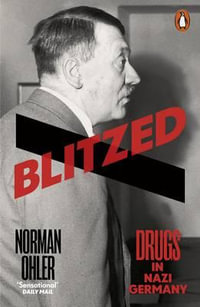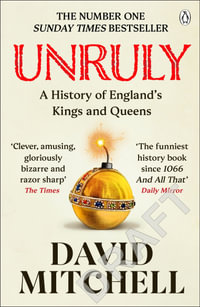After World War I, diplomats and leaders at the Paris Peace Talks redrew the map of Europe, carving up ancient empires and transforming Europe's eastern half into new nation-states. Drawing heavily on the past, the leaders of these young countries crafted national mythologies and deployed them at home and abroad. Domestically, myths were a tool for legitimating the new state with fractious electorates. In Great Power capitals, they were used to curry favor and to compete with the mythologies and propaganda of other insecure postwar states.
The new postwar state of Czechoslovakia forged a reputation as Europe's democratic outpost in the East, an island of enlightened tolerance amid an increasingly fascist Central and Eastern Europe. In Battle for the Castle, Andrea Orzoff traces the myth of Czechoslovakia as an ideal democracy. The architects of the myth were two academics who had fled Austria-Hungary in the Great War's early years. Tomaas Garrigue Masaryk, who became Czechoslovakia's first president, and Edvard Benes, its longtime foreign minister and later president, propagated the idea of the Czechs as a tolerant, prosperous, and cosmopolitan people, devoted to European ideals, and Czechoslovakia as a Western ally capable of containing both German aggression and Bolshevik radicalism. Deeply distrustful of Czech political parties and Parliamentary leaders, Benes and Masaryk created an informal political organization known as the Hrad or "Castle." This powerful coalition of intellectuals, journalists, businessmen,
religious leaders, and Great War veterans struggled with Parliamentary leaders to set the country's political agenda and advance the myth. Abroad, the Castle wielded the national myth to claim the attention and defense of the West against its increasingly hungry neighbors. When Hitler occupied the country, the mythic Czechoslovakia gained power as its leaders went into wartime exile. Once Czechoslovakia regained its independence after 1945, the Castle myth reappeared. After the Communist coup of 1948, many Castle politicians went into exile in America, where they wrote the Castle myth of an idealized Czechoslovakia into academic and political discourse.
Battle for the Castle demonstrates how this founding myth became enshrined in Czechoslovak and European history. It powerfully articulates the centrality of propaganda and the mass media to interwar European cultural diplomacy and politics, and the tense, combative atmosphere of European international relations from the beginning of the First World War well past the end of the Second.
Industry Reviews
"Andrea Orzoff is superbly qualified as the author of this book, not only because she has immersed herself inthe relevant primary and secondary literature on the topic but also because of her background in journalism, which was the primary tool for spreading the myth. She also shows that national questions remain an important part of the historical agenda in Central Europe when historical actors define them as important."--American Historical Review
"Battle for the Castle is a stimulating and imaginative history of statecraft in interwar Czechoslovakia....[It] is an important, engaging, and lucid study of Czechoslovakia's political culture, and of its struggle for legitimacy....[E]ssential reading for anyone who hopes to understand the vexed history of democracy and nation-making in twentieth-century Europe."--H-Net
"[Battle for the Castle] does a great job in tying together the simultaneous use of myth in nation building at home and in promoting the state's image and interests abroad...Andrea Orzoff has taken her place among [an] impressive cohort of English-language historians of Czechoslovakia."--Slavic Review
"This well-written and researched study will be essential to anyone interested not only in Czechoslovak interwar history, but also in the impact of various national myths on our recent history."--Zbysek Brezina, History Today Books
"Battle for the Castle-the story of a myth-is more broadly a story about what it means to be European-and what it means to be a small East-Central European country coveting the support of the West. The book will be of interest to all those who want to understand more about those peculiarly fascinating years between the two world wars."--Marci Shore, author of Caviar and Ashes: A Warsaw Generation's Life and Death in Marxism, 1918-1968
"Propaganda and myth, as Andrea Orzoff shows in this impressively researched and powerfully argued book, not only helped bring Czechoslovakia into existence after World War I; they informed nearly every aspect of interwar Czechoslovakia's political culture and foreign policy efforts. Anyone interested in cultural diplomacy, the failure of interwar European democracies, and relationships between modern media and political power should read Battle for the
Castle."--Chad Bryant, University of North Carolina at Chapel Hill
"Battle for the Castle embodies the finest qualities of intellectual and cultural history as they are practiced today. Offering nuanced insights on the character of inter-war Prague's civil society, Andrea Orzoff takes us behind the scenes in the Castle, in editorial offices, in board rooms, in cafes, and in private homes, to reveal just who created the Masaryk myths, who financed and propagated them, and what critical political functions they served
both domestically and internationally."--Pieter M. Judson, Swarthmore College
























